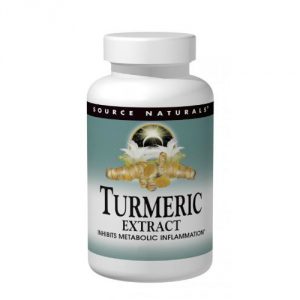One of the leading causes of death in the 21st century is cancer. And all over the world, people, burdened with disease or with the fear of losing a loved one to the scourge, have looked forward with optimism to a time when there’d be a breakthrough: when an elixir to cancer will be discovered. If recent studies are anything to go by, then today the world is closer to finding this much-awaited elixir. According to different researchers, curcumin, which is a derivative of turmeric, has a vast array of health applications – including the treatment of cancer.
Curcumin’s Potential to Treat Every Kind of Cancer
One interesting fact with the findings of the study is that curcumin shows an impressive performance in the treatment of almost every kind of cancer. That is unexpected, especially considering the fact that cancer has many different molecular pathologies; therefore, it is rather odd that curcumin seems to work for virtually all of them. However, pundits are quick to remind that curcumin has profound anti-inflammatory abilities which can act on various molecular targets.
The cells have molecules which interact with each other along certain tracks. The signals that arise in the trafficking of information in those molecules presents different targets.
It is not clear if curcumin molecule causes an increase in the activity of a particular molecular target or they inhibit a certain activity, but preliminary studies indicate that the result is always a potent anti-cancer activity. More good news is that curcumin doesn’t adversely affect healthy cells- it selectively targets cancer cells. Other research shows that curcumin works in synergy with particular chemotherapy drugs to enhance the elimination of cancer cells.
The different ways curcumin destroys cancer
As already noted, there is copious literature supporting curcumin’s effectiveness in the fight against any cancer. It does this by modulating genetic activity and expression- by both enhancing healthy cell function and destroying cancer cells.
Curcumin also enhances anti-angiogenesis. This means that the turmeric derivative throttles down the additional supply of blood that can aid cancer cell growth.
And what about its effect on molecular pathways? It’s been found that curcumin can affect more than a hundred molecular pathways the moment it gets into the cell. Particularly, the derivative:
- Prevents the proliferation of cancerous or tumor cells;
- Prevents the conversion of normal cells to tumor cells;
- Aids the body to destroy mutated cancer cells so they do not spread throughout the body;
- Decreases inflammation;
- Prevents the synthesis of protein thought to be critical in the formation of tumors; and,
- Throttles down the supply of additional blood which can help in cancer cell growth.
Can taking the whole turmeric achieve the same purpose?
Studies have shown that ingesting the whole turmeric cannot achieve the same results as taking the derivative, curcumin. That is because the turmeric root possesses only about 3% concentration of curcumin. Beside, curcumin is poorly absorbed. Therefore, when taken in its raw form, then only one percent of the available curcumin will be absorbed. Extracting curcumin from the turmeric is one of the best ways to have the curcumin in higher concentrations. And, to increase its bioavailability, the curcumin is boiled with water for 10 to 12 minutes.
References
http://articles.mercola.com/sites/articles/archive/2014/03/02/curcumin-benefits.aspx



Leave a Reply